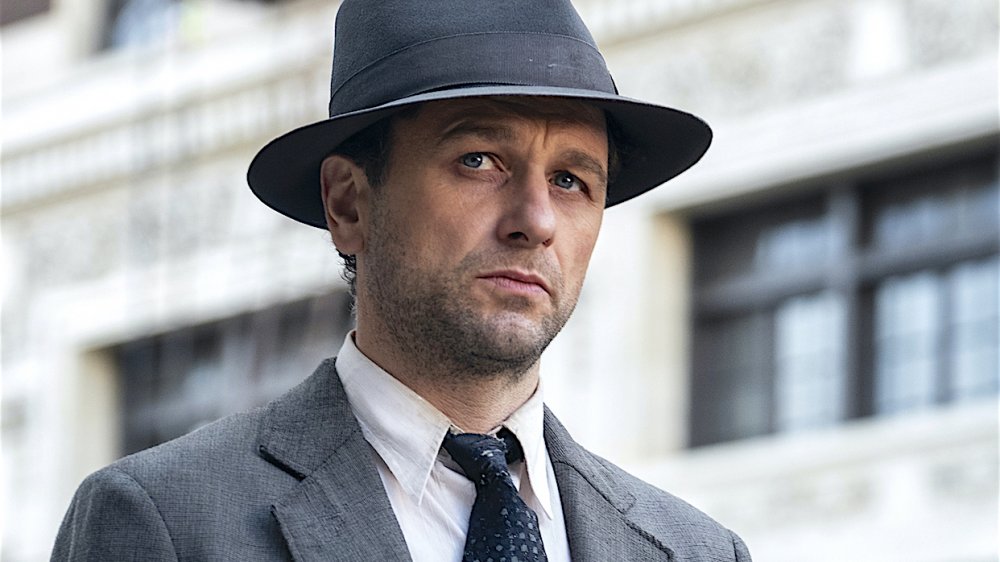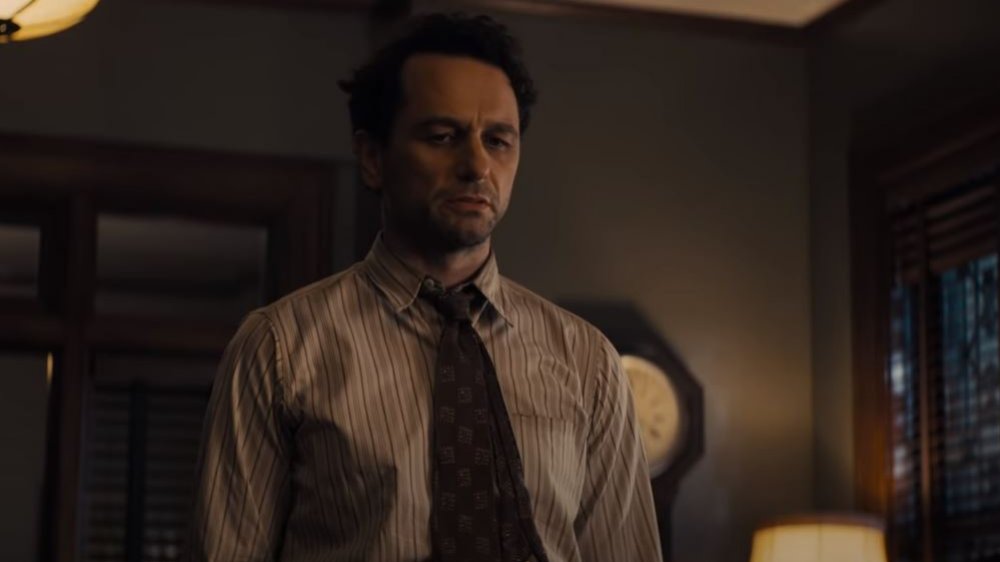Why Now Is The Perfect Time For A New Take On Perry Mason - Exclusive
Created by Erle Stanley Gardner, the Perry Mason of old showed a system that, for the most part, worked as intended. Sure, the District Attorney always charged the wrong man, but said man was exonerated by episode's end. The actual perp would confess, DA Hamilton Burger (William Talman) would drop the charges against the innocent party and charge the true culprit, and everything kept chugging along.
This isn't so on HBO's Perry Mason miniseries, starring Matthew Rhys in the lead role. Getting justice isn't the default here. The police are corrupt at best and incompetent at worst; prosecutors see the ends justifying the means, and are less focused on getting the right person as they are on higher office; and racism is prevalent throughout the entire system. Sound familiar? If not, watch the news or scroll through Twitter a bit. Look outside your window if you live in a city. A show about systemic corruption was released smack dab in the middle of a worldwide reckoning with policing and racism. HBO's new series isn't the most traditional take on Perry Mason, but it's the right one for the right time.
During an exclusive interview with Looper, Perry Mason writers and showrunners Rolin Jones and Ron Fitzgerald explained how their show being topical just shows how little we've progressed.
"Sadly," said Jones, "not a whole lot has changed since the '30s to the modernday times here." Fitzgerald also noted that setting the show somewhere besides "the Erle Stanley Gardner lily-white '30s" let them tell a story like this in a way not available to Mason before.
The past isn't even the past
Fitzgerald continued, noting that he and Jones aren't prophets; rather, history hasn't changed much, and HBO's Perry Mason aligning with the current state of the world is telling. "We didn't know that this particular moment in American history was going to collide with our show," he said. "If anything, it's more evidence that it was always there, front and center."
Having eight hours to tell the story over a miniseries instead of standalone episodes let Jones and Fitzgerald get a more nuanced look at the complex issues. "We are telling sort of a shaggy dog story, where classically, you want a bunch of people who don't have a lot of power to take on a system [...] With the crime that you have, the eight hours we have to tell the story, you're allowed to hit some subtleties and some nuances there," said Fitzgerald, adding that the people in the system are also victims of it. "You're just talking about the institutions. It's not just a bunch of evildoers. It's what happens when you're part of a system, and do you get corrupted along the way? Just for basic survival, I need to feed my family."
For characters on Perry Mason, who find out how different people are involved at different times, that's especially true. Fitzgerald pointed out that there are several people within the Perry Mason world who would have made different choices if they were exposed to the reality of the system earlier on. "There are a number of characters who, if they were in on the particulars of this crime at the beginning, would have jumped ship. But if you get deep enough into it, the machinery of the institution will scoop you up and take you along with it."
Fitzgerald also shared that he and Jones look at the "darker sides of capitalism" throughout the show as well. This was driven home during production. "We were planting our Hoovervilles when we were doing our downtown scenes and they were very, very close to where homeless encampments are right now," said Fitzgerald. "The haves and the have-nots are very clear and distinct, and not much as has changed over the 90 years."
Perry Mason airs new episodes on Sundays at 9 PM ET on HBO.

